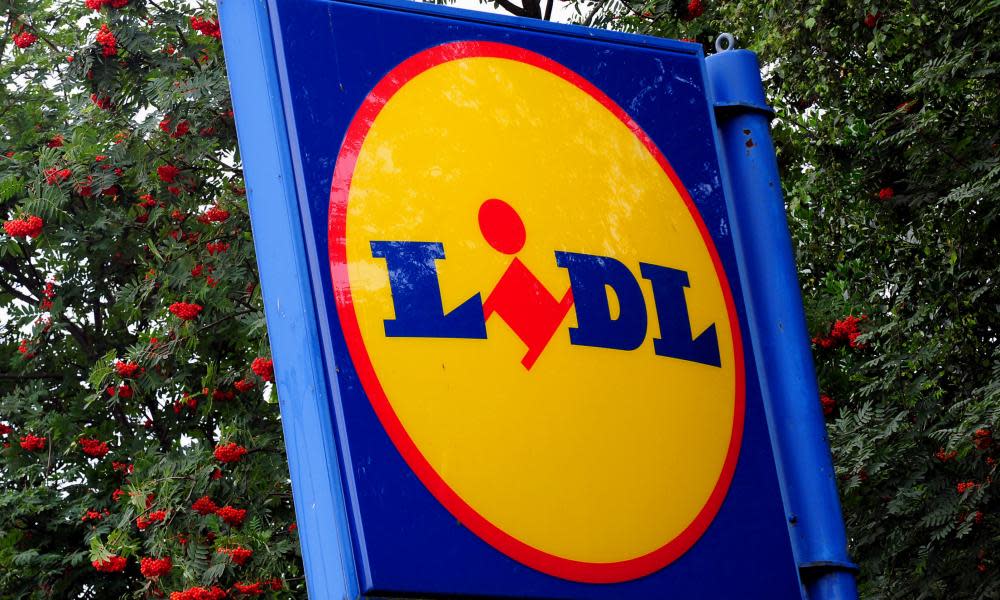Lidl attains its biggest UK grocery market share at 5.9%

Lidl has bagged its biggest ever slice of UK grocery spending as larger supermarket rivals lost ground during a poor stretch of summer weather.
Sales at the discount retailer jumped 7.7% in the three months to 11 August, fuelled by a burst of store openings that attracted nearly 500,000 more customers, compared with the same period of 2018. The influx of shoppers helped Lidl attain a 5.9% market share – its largest to date.
The figures from supermarket analysts Kantar showed online grocer Ocado was the fastest growing supermarket, with sales up 12.6%. The performance is good news for Marks & Spencer, which has paid £750m for a 50% share in Ocado’s retail arm in a bid to accelerate the expansion of its food halls.
The so-called “big four” – Tesco, Sainsbury’s, Asda and Morrisons – all lost market share. Tesco remains the UK market leader with 27% of the market, but that was down from 27.4% a year ago. Tesco shrank by 1.6% during the period.
Rival discounter Aldi grew at 6.2% with nearly half of UK households shopping in one of its stores during the period, demonstrating the extent to which the German retailer has established itself here. Aldi and Lidl ring up one in every seven pounds spent on groceries in the UK.
Overall, UK grocery sales were flat at nearly £27bn during the 12-week stretch, due partly to tough comparisons with a year ago when the supermarket trade was boosted by a long hot summer as well as events like the royal wedding and the World Cup.
Fraser McKevitt, Kantar’s head of retail and consumer insight, said: “The memory of last year still looms large for retailers and this summer’s comparatively poor weather, combined with low levels of like-for-like price rises, have made growth hard to find for retailers.”
The record temperatures recorded in July were not enough to push the market into growth but sunny spells during the past four weeks had boosted sales of summer staples like hayfever remedies and suncream up 17% and 8% respectively, it said.
Asda suffered a 1.5% drop in sales, a decline that saw its market share drop from 15.2% to 14.9%. Last week Roger Burnley, the Asda boss, blamed uncertainty surrounding Brexit for its weak sales performance in the first six months of 2019.

 Yahoo News
Yahoo News 
